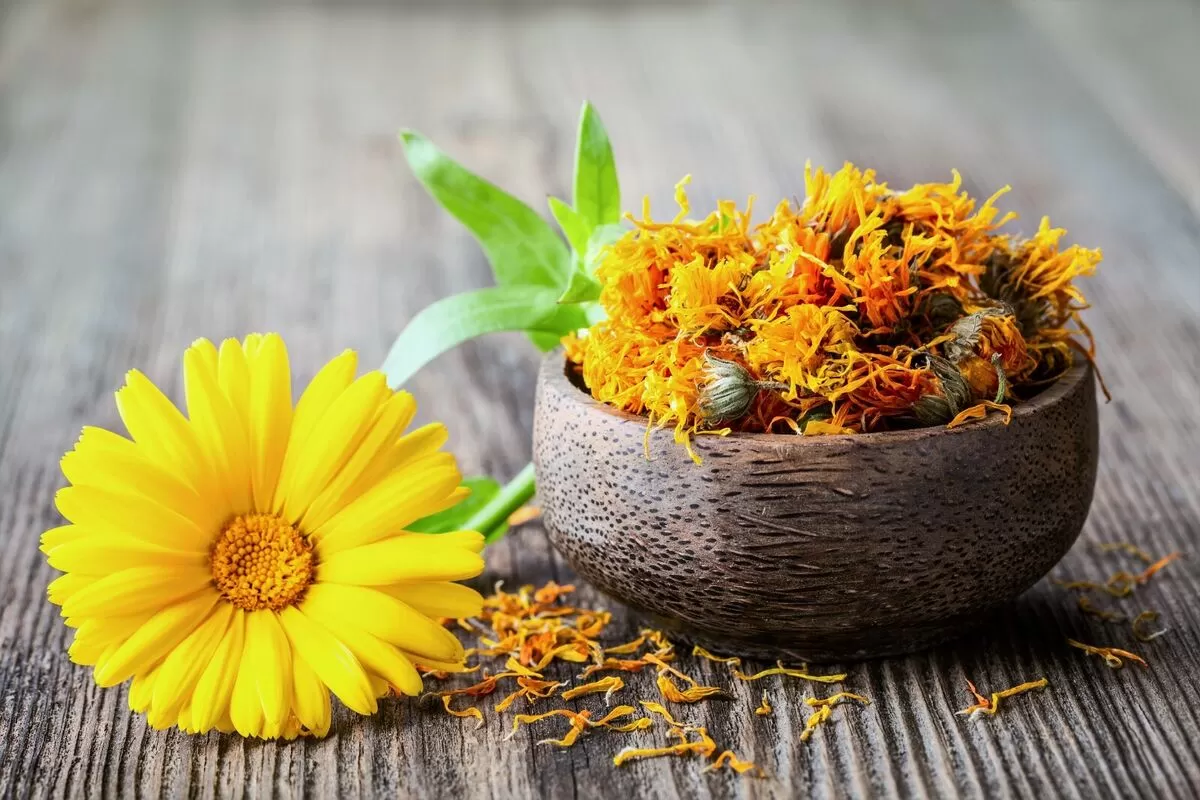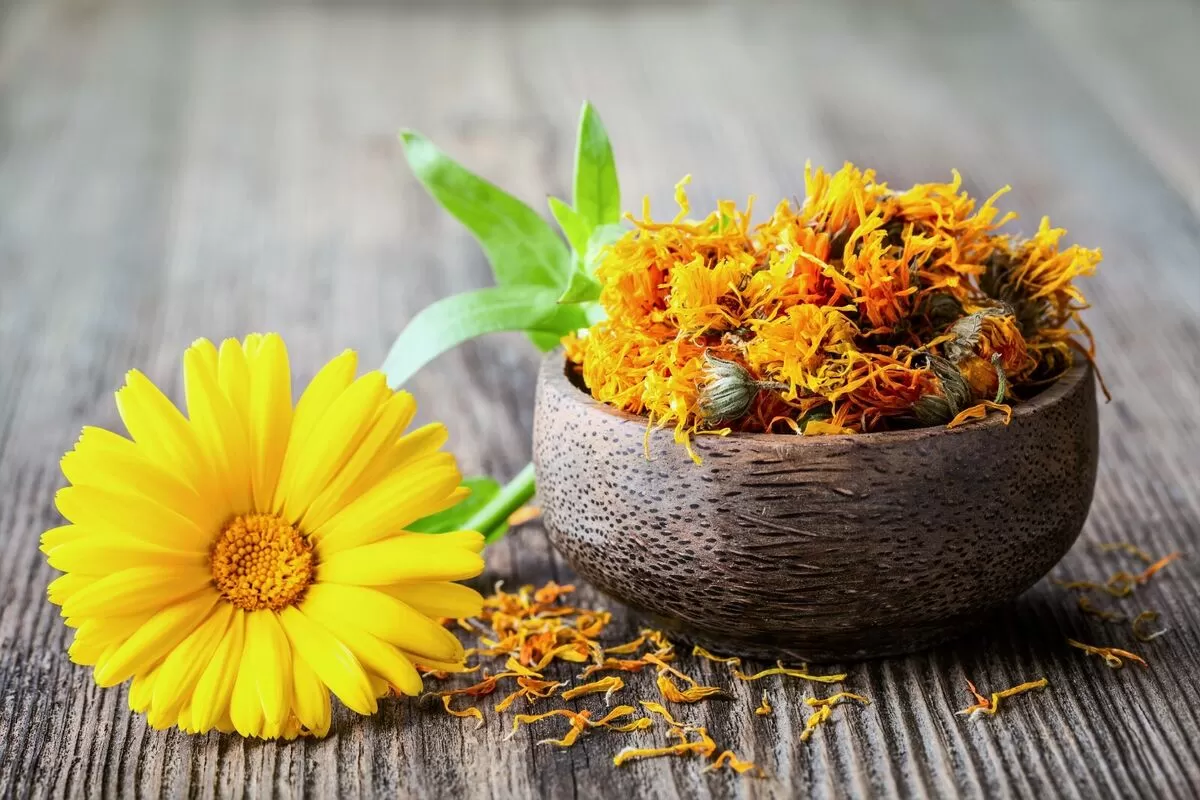- 0086-571-85302990
- sales@greenskybio.com
Who Should Avoid Marigold: Its Risks and Contraindications
2025-04-24
Marigold, a vibrant flower known for its bright yellow and orange petals, is not only a staple in gardens and bouquets but also renowned for its therapeutic properties. Scientifically known as Tagetes, marigold's extracts and essential oils are commonly used in herbal remedies and traditional medicine practices. Despite its popularity and numerous health benefits, marigold is not suitable for everyone. Understanding the risks and contraindications associated with marigold can help prevent adverse effects and ensure its safe application for those who use it.
Introduction to Marigold and Its Uses
Marigold has been widely used in various cultures for its medicinal properties. The most common species used medicinally are Calendula officinalis, often referred to as pot marigold. The flower is known for its anti-inflammatory, antimicrobial, and wound-healing properties. It is commonly used in ointments, creams, and teas to treat skin conditions, minor wounds, and inflammation. Despite its usefulness, marigold is not without its potential risks. It is essential to understand who should avoid using marigold, to prevent potential health complications.
Allergic Reactions and Sensitivities
One of the primary concerns associated with marigold is the potential for allergic reactions. Individuals who are allergic to plants in the Asteraceae/Compositae family, such as ragweed, daisies, chrysanthemums, and asters, may also be allergic to marigold. Symptoms of an allergic reaction can range from mild skin irritation and itching to more severe reactions like difficulty breathing and anaphylaxis. Therefore, people with known allergies to these plant families should avoid using marigold in any form.
Additionally, individuals with sensitive skin or a history of eczema should exercise caution when using marigold topically. Although marigold is often used to soothe skin conditions, it can occasionally exacerbate skin irritation in susceptible individuals. A patch test is recommended before widespread application to ensure no adverse reactions occur.
Pregnancy and Breastfeeding
Pregnant and breastfeeding women are often advised to exercise caution with herbal remedies due to limited research on their safety during these critical periods. While marigold is generally considered safe, there is insufficient data regarding its effects on pregnancy and lactation. The lack of comprehensive studies necessitates a cautious approach. Pregnant and breastfeeding women should avoid using marigold internally, especially in concentrated forms like tinctures and extracts, unless under the guidance of a qualified healthcare professional.
Medications and Medical Conditions
Marigold may interact with certain medications and medical conditions, posing potential health risks. It is crucial to consider these interactions to prevent possible adverse effects:
1. Anticoagulant and Antiplatelet Drugs: Marigold may enhance the effects of anticoagulant and antiplatelet medications, increasing the risk of bleeding. Individuals taking blood thinners such as warfarin, aspirin, or clopidogrel should avoid marigold unless advised otherwise by their healthcare provider.
2. Sedatives and CNS Depressants: Marigold has been reported to have mild sedative properties. As a result, it may enhance the effects of central nervous system depressants, including sedatives, sleeping pills, and anti-anxiety medications. Individuals taking these medications should consult their doctor before using marigold.
3. Diabetes: Marigold may affect blood sugar levels, potentially interfering with diabetes medications. Individuals with diabetes should monitor their blood sugar levels closely and consult with a healthcare professional before using marigold.
4. Surgery: Due to its potential effects on blood clotting and sedation, it is advisable to discontinue the use of marigold at least two weeks before any scheduled surgery. This precaution helps reduce the risk of excessive bleeding and interaction with anesthesia.
Children
Use of marigold in children should be approached with caution. While marigold is often used in topical applications for minor cuts and skin irritations in children, it is crucial to ensure that the child does not have any known plant allergies. The delicate skin of young children may be more prone to irritation, so a patch test is recommended before full application. Additionally, internal use of marigold in children should only be performed under medical supervision.
Conclusion
Marigold boasts a range of therapeutic properties and is a valuable component of many herbal remedies. However, it is not suitable for everyone. Understanding the potential contraindications and who should avoid using marigold is essential for ensuring safety and preventing adverse effects. Individuals with allergies to the Asteraceae plant family, pregnant and breastfeeding women, individuals on certain medications, and those with specific medical conditions should exercise caution or avoid marigold altogether.
As with any herbal remedy, it is always recommended to consult with a healthcare professional before introducing marigold into your health regimen, especially if you belong to any of the at-risk groups. By taking these precautions, you can safely enjoy the benefits of marigold without compromising your health.
-
Is Marigold Good for Eczema?
2025-04-24
-
Can we apply marigold on face?
2025-04-24
-
What are marigolds used for?
2025-04-24
-
Is marigold good for inflammation?
2025-04-24
-
Are marigolds safe for human consumption?
2025-04-24














